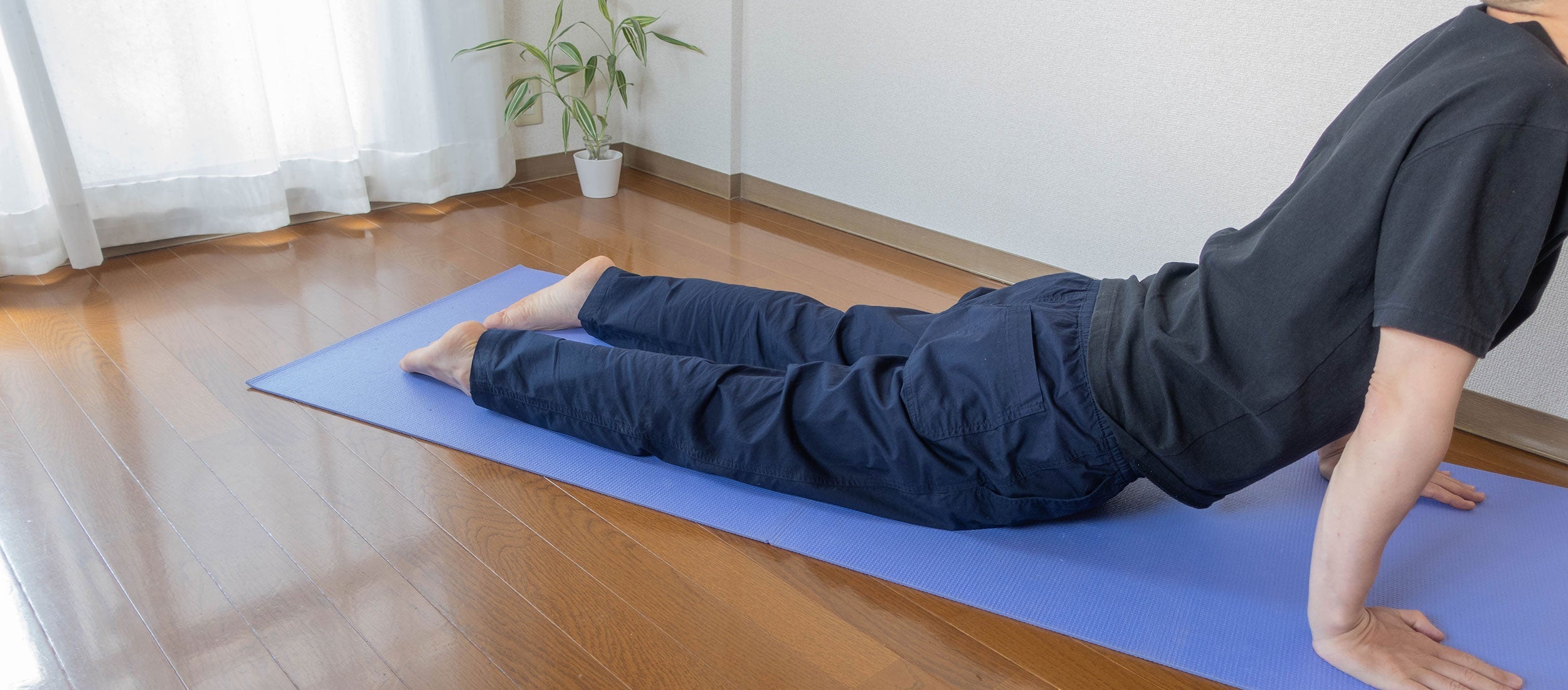When it comes to your sex life, what’s running behind the scenes is far more than libido or mood. Your hormones, circulation, nervous system, even how you experience your body in everyday life, they all combine to either open you up to desire or shut you down. That’s why fitness is a foundational pillar of sexual vitality.
Exercise has the power to sharpen your arousal, enhance erectile reliability, and build confidence, provided you balance it. Because yes: too much or the wrong kind of training can backfire, dampening libido or causing fatigue.
In this article, we’ll explore how movement influences sexual performance and how to build a fitness routine that enhances your desire, stamina, and connection, both in and out of the bedroom.
Why Your Workouts Matter for Your Sex Life
Your sexual function depends on the health of three interacting systems: your cardiovascular (heart & blood vessels), your hormonal (endocrine), and your neurological (nerves + brain). Exercise supports all three, and when one underperforms, sex starts to strain.
Here’s how movement helps:
1. Circulation & Arousal Go Hand in Hand
The more you train your heart and blood vessels (through cardio, strength work, or dynamic movement), the better your body becomes at delivering oxygen-rich blood to sensitive areas, including the penis. Strong vascular health makes erections more reliable, improves lubrication (when relevant), and contributes to more intense sensation overall.
For instance, research has shown that as little as a 30-minute daily walk can reduce the risk of erectile difficulty. That’s a small time investment for a big upside.
2. Hormonal Support for Desire
When you engage in regular movement, your brain and body release testosterone, growth hormone, endorphins, and other neuromodulators that enhance arousal and energy. Exercise also helps manage cortisol, the stress hormone that, in excess, can suppress libido.
Movement nudges nitric oxide levels upward (key for dilating blood vessels), boosts sperm quality, and helps maintain a healthy ratio of stress-to-sex hormones.
3. Stress Relief Leads to Turn-On
One of the greatest gifts of consistent exercise is its soothing effect on the nervous system. Movement stimulates the vagus nerve, helps regulate mood, and reduces anxiety. Lower baseline stress means less cortisol to block the very pathways you need for arousal.
However, a caveat: excessive training (especially long, unbroken cardio sessions) can elevate cortisol chronically and suppress testosterone. The goal is sustainable, pleasure-supportive movement, not burnout.
4. Confidence and Body Connection
When you move your body frequently, you start to feel stronger, more in control, more embodied. That internal shift shows up when you look in the mirror and when you move close to someone intimately. A stronger self-image tends to fuel sexual confidence, which translates directly to what you bring to intimate experiences.
A recent study linked body confidence to higher sexual satisfaction, and that confidence also correlated with better relationship dynamics.
Cardio, Vasculature & Erectile Strength
Cardiovascular exercise is one of the clearest ways to support erection health. Whether you walk, jog, swim, bike, or row, cardio helps your blood vessels perform better, enabling easier blood flow to the penis and maintaining it there.
Here’s what the evidence says:
- Cardiovascular activity improves endothelial function, the ability of blood vessels to expand and contract in response to signals.
- Men performing regular aerobic routines see boosts in erectile performance, lower prevalence of dysfunction, and improvements in measures like the International Index of Erectile Function (IIEF).
- One study showed a home walking plan reduced ED symptoms dramatically in just a few weeks.
- Interval training (alternating higher and lower intensity) often leads to better vascular responsiveness, even in men with metabolic conditions.
- Adding resistance and pelvic floor work to cardio can elevate outcomes, some men seeing double-digit improvements on IIEF scores in months.
Cardio’s benefits extend beyond erection. It also supports sperm health, hormonal balance, and oxidative stress reduction, all critical for sexual and reproductive health.
That said: there’s a threshold. If cardio becomes a stressor (overtraining, insufficient recovery, calorie deficits), it can raise cortisol, sap testosterone, and even harm sperm parameters. More isn’t always better.
Sex itself is physically demanding, burning calories, raising heart rate, and requiring muscular engagement. If your cardiovascular system is strong, your body handles sex more easily. You gain stamina, ease, and the psychological freedom to stay present rather than worrying about fatigue.
Sex generally ranks around 3.5 METs of effort (a moderate exercise zone). That means most healthy men can engage in it safely, and fitness training improves your ability to enjoy it. (Yes, you don’t have to be a marathoner to have great sex.)
Crafting a Sexuality-Empowering Routine
The best workout plan for your sex life is not the one that leaves you exhausted, it’s the one that leaves you energized, centered, and confident. Here’s how to build it:
1. Prioritize consistency over intensity
Aim for 150 minutes of moderate movement per week or 75 minutes of vigorous activity. That might mean walking, cycling, swimming, dancing, or whatever motivates you. Even short “micro-moves” (10–15 minutes) have measurable benefits.
2. Incorporate strength sessions
Lifting weights 2–3 times a week helps support testosterone production, muscle mass, and physical resilience. Emphasize compound movements (squats, deadlifts, presses, rows) that engage multiple muscle groups. Rest periods of 60–120 seconds help optimize hormonal responses. You can also add supplements like Ultramax Rise, a natural testosterone booster.
3. Train your pelvic floor
Pelvic floor work (e.g., Kegels) improves erection firmness and aids in control. Practice contracting the muscles you’d use to stop urine flow, holding for 8–12 seconds, repeating 8–12 times, 2–3 times daily. Consistency is key, small efforts over time build resilience in erectile tissues.
4. Include flexibility, mobility, or yoga
One to two sessions a week can help ease tension, open hips, deepen breath, and activate your parasympathetic (rest) nervous system. Yoga and mobility flow support hormonal balance, reduce stress, and help you feel more embodied, all of which translate to better sexual connection.
5. Add Bathmate: Your Erection “Workout” Tool
If you want to directly support erection mechanics, a Bathmate pump can be a valuable companion. Picture it as strength training, but for the blood vessels and erectile tissues.
This water-based vacuum device encourages increased circulation into the penis, gradually training it to respond more reliably. When used consistently (much like a resistance muscle) it can amplify the gains you’re already making with movement and nervous system health.
Used alongside movement, breathing, recovery, and nervous system balance, Bathmate pumps can be a powerful tool, not a standalone fix.
6. Respect rest and recovery
Don’t skip rest days, that’s where your body heals, hormones stabilize, and libido regenerates. Overreaching leads to hormonal suppression, mood shifts, and decreased sexual interest.
Support recovery with proper nutrition (whole foods, healthy fats, antioxidants), good hydration, quality sleep, and stress management tools.
Also remember: movement is powerful, but so is your mental and relational container. Pair your fitness habits with emotional work (therapy, breath practices, connection with your partner) to build a fully responsive sexual system.
Train for Turn-On
Fitness isn’t just about looking good. It’s about creating a body that feels alive, confident, responsive, and free.
When your cardiovascular, hormonal, and neurological systems are wired to support desire, not suppress it, your sex life deepens in consistency, intensity, and mutual satisfaction. It also shifts your relationship with your body from performance-based pressure to one of connection and trust. The more embodied you feel, the more present you are with your partner. The more present you are, the easier it becomes to access true pleasure, the kind that unfolds without force or expectation.
So whether you’re hitting the gym, going for a walk, stretching between meetings, or using a tool like Bathmate to support your arousal, remember: you’re investing in more than your body. You’re investing in the quality of your intimacy, your confidence, and your ability to show up fully in moments that matter most.









Hakima Tantrika
Learn MoreHakima Tantrika is a sex educator, intimacy coach, and copywriter who contributes regularly to Bathmate’s blog. Trained in classical Tantra, she helps individuals cultivate deeper self-awareness, authentic connection, and embodied confidence. On Substack, she leads an engaged community where she shares insights on sexuality, relationships, and personal growth, blending education with honest storytelling. Through her clear, thoughtful approach and distinctive voice, Hakima brings depth and integrity to modern conversations about intimacy, pleasure, and self-understanding.
Aktie:
The Hidden Link Between Stress and Erection Strength
How to Establish a Daily Pumping Routine to Build Sexual Confidence